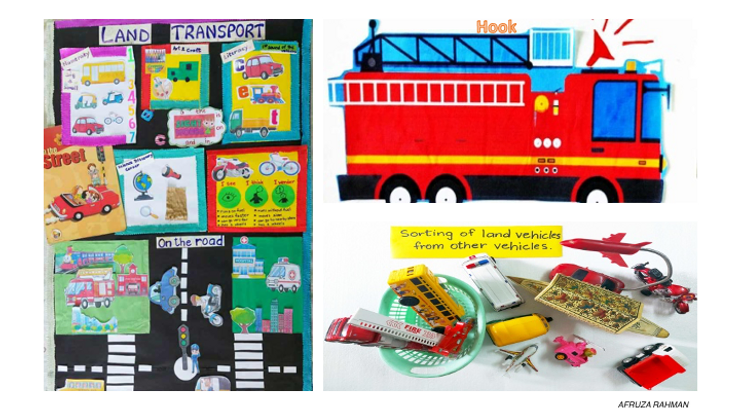
We did a workshop with an amazing group of teachers from Maria Montessori House of Children exploring how we can create an inquiry driven approach to teach our early learners. Participants went through the inquiry cycle – we ask – we find out – we understand – we reflect and we act. The teachers worked tirelessly to design and implement an inquiry based unit in their classroom. We started them on this journey of asking questions, wondering and discovering which they will continue in their classrooms and continue to nurture the curiosity in their children leading to deeper learning.
The picture above and the comments below from the teachers encapsulates their experience during the workshop
“As teachers we inadvertently end up resorting to information based teaching. The objectives, the expectations are all laid out and we feed so much instruction and direction that children are disinterested and intellectually under stimulated. This workshop has thrown a light on how inquiry based education can be a powerful way of teaching the early learners.”
“The workshop has helped me to make my classes more interactive. The Inquiry Cycle introduced by the facilitator especially the ‘hook’ and Inquiry Questions was completely new to me. I learned that there should be a balance between knowledge, skills and understanding learning outcomes.”
“Encouraging students to ask questions, balance of Knowledge, Skills and Understanding learning outcomes, Learning stations at home, connecting Learning Objectives to the Learning Engagements and Assessment, ongoing formative assessments was an eye opener to us.”
“It is an approach to learning that emphasizes the student’s role in the learning process. Rather than the teacher telling students what they need to know, students are encouraged to explore the material, ask questions and share ideas.”
“After the workshop I am going to plan my interactions and lessons in a more strategic manner.”
“Key learnings:
*Learning should be through interaction.
*Identify children’s interests.
*Let children open up and help them learn.
*Plan and prepare an environment where children will be encouraged to initiate inquiries
*Interaction with children on one to one basis
*Plan a curriculum where all teachers work as a team”